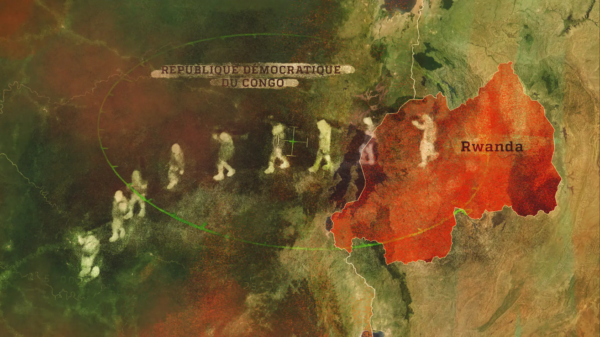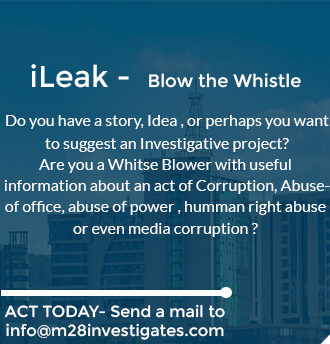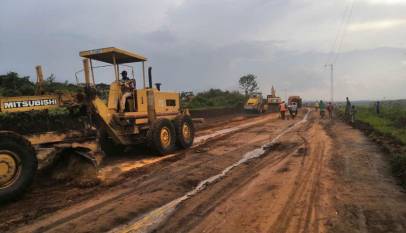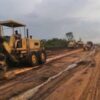Researching people online
PIPL: https://pipl.com/
A search engine for people. This site’s easily searchable database contains information on more than 3 billion people: just entering the name and website, if available, will get you their data. PiPl provides you with information about the person, data about their website, other connected people and plenty of other information. The database was built by culling and organising data from the internet in order to encompass as many people as possible
PeoplefindThor: https://www.peoplefindthor.dk/
It is easy today to conduct more sophisticated searches of Facebook profiles using the various filters available. This tool makes it even easier to identify, for example, two people who lived in the same city at the same time, or worked together in the same company. What makes it stand out is that it allows you to establish connections between people, making it easier to get hold of new information.
Researching companies online
OpenCorporates: https://opencorporates.com/
Finding data on corporations and their senior employees can be difficult and take a lot of time, particular with big corporations with multiple offices around the world. This website makes looking for corporate data much easier. The website’s database includes information about more than 165 million companies and more than 200 million senior employees. You can conduct both general searches and more specific searches focusing on particular countries. Because the website is based on searches with specific filters, it is easier to establish connections between companies or work out which companies are run by the same CEO.
Investigative Dashboard: https://id.occrp.org/
If you need more specialized help in an investigation, this platform should be your first destination. Alongside its massive database, which contains millions of records of previous investigations, links and public sources, it also makes it easy to contact experts in various fields from around the world. The platform is free and maintained by the Organised Crime and Corruption Reporting Project (OCCRP)
Monitoring services.
HRL Lookups: https://www.hlr-lookups.com/
This website makes it easier to find mobile phone information. It consists of a global registry of all mobile phones registered with service providers. This network was set up so that service operators could easily work out what network a particular phone was on in order to reroute calls or mobiles, but it is also possible to use it to get access to data about particular mobile phones: the name of the network, whether the number has been moved to a new network, whether it uses roaming and other data. The website can also monitor a number of mobile phones at once, and allows you to set an alert if the phone moves from one country to another or if the network is changed. This can prove crucial to an investigation.
Flightradar24: https://www.flightradar24.com/
This is one of a number of websites that allow you to monitor flight movements. It uses airport data and data provided by a network of volunteers to show the movement of different flights in real time. You can use this service to get information about flights that have left or arrived at a particular airport, follow the flight path, and get access to planes’ registration information and the companies they belong to, as well as other information.
Traffic.com:
MarineTraffic is the maritime counterpart to FlightRadar24. You can use it to follow the movement of ships around the world, in real time. You can also get up-to-date information about the condition of ships, their location, their heading, the ports they set off from, and details about the type and purpose of different ships. The website provides detailed information for free, and subscribers can get access to even more sophisticated functions.
Track-trace: https://www.track-trace.com/
Following planes and ships is often very useful, but being able to follow individual shipping containers can provide an even clearer picture. This website allows you to trace the movement of shipping containers around the world by using an ID number carried (in principle) by each container. This will tell you the owner, the destination, and where it is going as well as other information.
Verification tools (video):
YouTube Video Finder: http://youtube.github.io/geo-search-tool/search.html
It may sometimes be difficult to get hold of a video clip from a particular place or time. This tool makes the process easier. You can search for keywords and narrow your search to a particular geographical area or timespan, allowing you to find relevant videos easily.
Amnesty International YouTube Data Viewer: https://citizenevidence.amnestyu-sa.org/
The difficulty of verifying potentially fabricated video clips is a reality we all face. Many such videos are produced by splicing together different clips into a single video, with the publishers claiming that it is the original video. It is sometimes difficult to distinguish these videos from real videos. This tool, provided by Amnesty International, makes the process easier: all you need to do is put in the YouTube link. The tool will then cull as much data as possible about the video – like the original production date. More importantly, it will also provide a series of thumbnails that can be entered into Google reverse image search to identify potential original videos.
Social media platforms
Twlets: http://www.twlets.com/
This simple app allows you to download Twitter data. By simply adding it to your Chrome browser, you will be able to archive any user’s tweets with the click of a button. The free version only allows you to download 3,200 tweets or 50,000 followers, but there are also paid for options if you want to know more. The app also makes it easy to download other kinds of data from Twitter, from friends to images and lists. All of this data is saved as a spreadsheet or CSV file, making it easier to analyse.
IntelTechniques: https://inteltechniques.com/
A uniquely versatile website for journalists – not a single tool, but several tools used for rapid and effective searches on the internet. The website makes it possible for you to search dozens of sources simultaneously. Rather than searching Facebook, Twitter and LinkedIn separately, you can search them all simultaneously. The site allows you to narrow the scope of a search using various filters: name, location, contact details, etc. It also conducts indepth searches across the internet, allowing you to get access to sites that a normal search would not have provided.
Maps and satellites
How Many People: https://sedac.ciesin.columbia.edu/
This service has no official name, but it is very useful if you want to find out specific information about a particular area of the world – the number of people who live there, the area of a particular area or other specific information. It consists of a map populated with demographic data. By drawing lines on the map you can get an estimated population of an area as well as its exact size in square kilometres.
MapChecking: https://www.mapchecking.com/
This tool allows you to produce specially drawn maps in order to estimate the number of people that might fit in a particular area. This is very useful if you need to establish, for example, how many people might have taken part in a demonstration or celebration. Although the tool is in French, it is easy to use: using the cursor, you simply delineate the area you are interested in. The sidebar will then tell you how many square kilometres the area is and the approximate number of people that it could hold. You can thus work out how many people are likely to have participated in a particular event.
Terraserver: https://www.precisionhawk.com/satellite
Satellite photography is occupying an increasingly important place in digital investigative journalism. With the growing number of satellites providing high-quality images, it is easier than ever to track the progress of major events on earth. Terraserver is one of the best tools available for journalists and other interested parties. The service is not free, but the satellite imagery is very high quality and can make a big difference to your journalism.
Privacy and cybersecurity
Given how many ways there are of getting information on others, journalists should be careful to protect themselves from any possible threats or breaches. The following are a few tools that it is worth using to protect your privacy and your data while browsing the internet.
OnionShare: https://onionshare.org/
A simple tool for sending data over Tor, a secure network that anonymizes communication. After downloading and installing the tool, you will be able to use it to send important information that has to be kept secret to other people by providing them with a secure link. This link will allow them to download the information using the Tor browser. When the download is finished the link becomes inactive, preventing anyone else from using it.
LastPass: https://www.lastpass.com/
Password management is one of the most important ways you can protect your information on the internet. By using this tool, you can produce passwords that will be very difficult to crack and you will not need to memorise them all. LastPass saves all your passwords, meaning you need only one password to access all your accounts. There are many password management tools, so you might as well try out a few alternatives before deciding which is the best for you.
Signal: https://signal.org/
This is a secure instant messaging app you can use on your computer or mobile. Signal should be a central part of any news outlet’s communi cation strategy so that the messages exchanged with third parties cannot be hacked or seen by others. The app is easy to use, and is not meaningfully different from other instant messaging apps, but is much more secure.
Outline: https://www.getoutline.org/
Everyone knows in theory at least how crucial it is to use a VPN to keep your information secure, whether as an individual or as an organization. But many find it difficult to use these networks consistently. Outline is a VPN client provided by one of Google’s many subsidiaries. It makes it easier to set up a VPN in order to communicate with other journalists, sources or people helping you with your investigation securely. Outline can be used with cloud services like Digital Ocean, meaning that there is no need for a private server. This chapter has provided a survey of some of the best software available to investigative journalists. But this list is not exhaustive.
There are many other tools that may be more useful to one investigation or another. To see a more detailed list of digital tools, which is regularly updated, you can visit Open Source Intelligence Framework (https://osintframework.com). You might also want to take a look at the Global Investigative Journalist Network page (https://helpdesk.gijn.org/)















https://WWW.Waste-Ndc.pro/community/profile/tressa79906983/
June 23, 2024 at 4:18 am
It’s actually a great aand hlpful pioece of info.
I am satisfied that you shared this helpful information with
us. Please keep us up to date like this. Thank you for
sharing. https://WWW.Waste-Ndc.pro/community/profile/tressa79906983/
https://WWW.Waste-Ndc.pro/community/profile/tressa79906983/
June 23, 2024 at 4:18 am
It’s actually a great and helpful piece of info.I am satisfied that you shared
thi helpful information with us. Please keep us up to date like this.
Thank you for sharing. https://WWW.Waste-Ndc.pro/community/profile/tressa79906983/